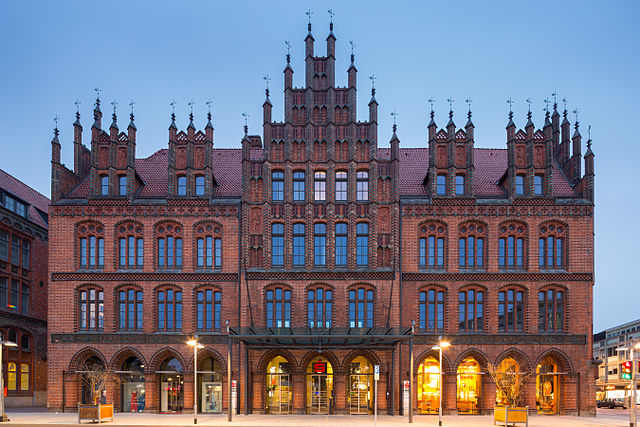The House of Hanover is a European royal house with roots tracing back to the 17th century. Its members, known as Hanoverians, ruled Hanover, Great Britain, Ireland, and the British Empire at various times during the 17th to 20th centuries. Originating as a cadet branch of the House of Welf in 1635, also known then as the House of Brunswick-Lüneburg, the Hanoverians ascended to prominence with Hanover's elevation to an Electorate in 1692. In 1714 George I, prince-elector of Hanover and a descendant of King James VI and I, assumed the throne of Great Britain and Ireland, marking the beginning of Hanoverian rule over the British Empire. At the end of his line, Queen Victoria's death in 1901, the throne of the United Kingdom passed to her eldest son Edward VII, a member of the House of Saxe-Coburg and Gotha, through his father Albert, Prince Consort. The last reigning members of the House of Hanover lost the Duchy of Brunswick in 1918 when Germany became a republic.
George I (1714–1727)
George II (1727–1760)
George III (1760–1820)
George IV (1820–1830)
Hanover is the capital and largest city of the German state of Lower Saxony. Its 535,932 (2021) population makes it the 13th-largest city in Germany as well as the fourth-largest city in northern Germany after Berlin, Hamburg and Bremen. Hanover's urban area comprises the towns of Garbsen, Langenhagen and Laatzen and has a population of about 791,000 (2018). The Hanover Region has approximately 1.16 million inhabitants (2019) and is the largest in the Hannover–Braunschweig–Göttingen–Wolfsburg Metropolitan Region.
Image: Hannover Blick Neues Rathaus 01
Image: Hannover old townhall Karmarschstrasse Mitte Hannover Germany 01
Image: Marktkirche St Georgii et Jacobi Mitte Hannover Germany
Image: Herrenhäuser gärten 2








